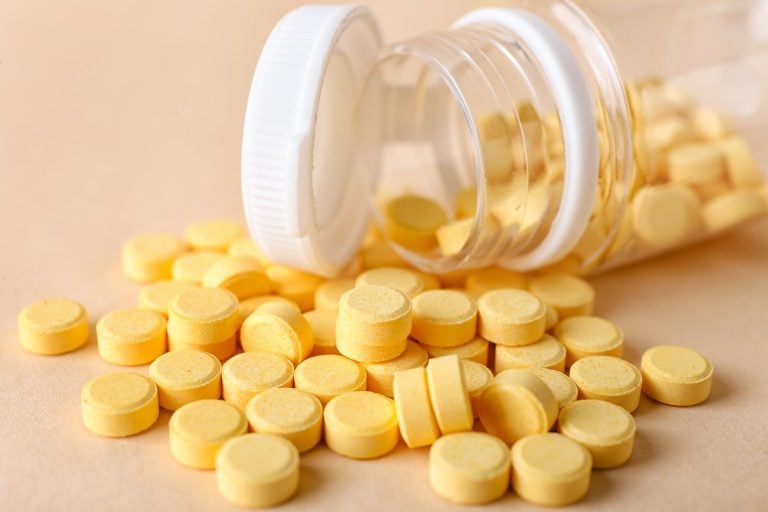博文
叶酸是保护宝宝远离铅和自闭症的关键吗?  精选
精选
||
叶酸是保护宝宝远离铅和自闭症的关键吗?
诸平
据加拿大西蒙菲莎大学(Simon Fraser University, Burnaby, British Columbia, Canada)2024年10月23日提供的消息,叶酸是保护宝宝远离铅和自闭症的关键吗?(Could Folic Acid Be the Key to Protecting Your Baby From Lead and Autism?)
西蒙菲莎大学的研究人员发现,叶酸盐(folate)可能会减轻孕妇所生孩子的血铅水平对自闭症样行为发展的影响。
该研究表明,每天摄入至少0.4毫克(0.4 mg)的叶酸(folic acid)可以减弱铅的神经毒性作用,这与加拿大卫生部目前针对孕妇的指导方针一致。
西蒙菲莎大学的研究人员发现,叶酸盐可能会降低孕妇血铅水平与其孩子自闭症行为之间的联系。这项研究由西蒙菲莎大学健康科学学院(SFU’s Faculty of Health Sciences)的博士生约书亚·阿兰皮(Joshua Alampi)领导, 2024年10月16日已经在《环境与健康展望》(Environmental Health Perspectives)杂志网站在线发表——Joshua D Alampi, Bruce P Lanphear, Amanda J MacFarlane, Youssef Oulhote, Joseph M Braun, Gina Muckle, Tye E Arbuckle, Jillian Ashley-Martin, Janice M Y Hu, Aimin Chen, Lawrence C McCandless. Combined Exposure to Folate and Lead during Pregnancy and Autistic-Like Behaviors among Canadian Children from the MIREC Pregnancy and Birth Cohort. Environmental Health Perspectives, 2024 Oct; 132(10): 107003. DOI: 10.1289/EHP14479. Epub 16 October 2024.
参与此项研究的除了来自加拿大西蒙菲莎大学的研究人员之外,还有来自美国德州农工农业、食品和营养证据中心(Texas A&M Agriculture, Food, and Nutrition Evidence Center, Fort Worth, Texas, USA)、美国纽约西奈山伊坎医学院(Icahn School of Medicine at Mount Sinai, New York City, New York, USA)、美国罗德岛的布朗大学(Brown University, Providence, Rhode Island, USA)、加拿大魁北克市拉瓦尔大学(Laval University, Québec City, Québec, Canada)、加拿大卫生部健康环境和消费者安全处(Healthy Environments and Consumer Safety Branch, Health Canada, Ottawa, Ontario, Canada)、美国宾夕法尼亚大学佩雷尔曼医学院(University of Pennsylvania Perelman School of Medicine, Philadelphia, Pennsylvania, USA)的研究人员。
约书亚·阿兰皮说:“在怀孕期间补充叶酸对孩子的健康有很多好处,尤其是大脑发育。我们的研究表明,补充足够的叶酸可以减轻铅的神经毒性作用。
这是第一项研究表明,适当的叶酸补充可以降低与怀孕期间铅暴露相关的自闭症风险。研究结果显示,在每天补充叶酸少于0.4毫克(<0.4 mg)的孕妇中,血铅水平与幼儿自闭症样行为之间的联系更强。
叶酸盐(Folate)和叶酸(folic acid)即一种人工合成叶酸的形式,存在于强化食品中。长期以来一直被认为是孕期有益的营养物质。叶酸盐的摄入在大脑发育和防止神经管缺陷中起着关键作用。先前的研究发现,在怀孕期间暴露于杀虫剂、空气污染物和邻苯二甲酸盐类(phthalates)之间的联系,在叶酸补充不足时往往会更强。需要说明,邻苯二甲酸盐是软塑料中常见的化学物质。
研究小组使用了从2008~2011年收集的2000名加拿大妇女的数据,这些妇女参加了环境化学品母婴研究(Mother-Infant Research on Environmental Chemicals简称MIREC study)。MIREC团队测量了在妊娠早期和晚期收集的血铅水平,并调查了参与者,以量化他们的叶酸补充剂。在这项队列研究中出生的儿童在三岁或四岁时使用社交反应能力量表(Social Responsiveness Scale简称SRS)进行评估,这是一种常见的看护人报告工具,用于记录幼儿的自闭症样行为。
然而,研究人员还发现,高叶酸补充剂(每天>1.0 mg)似乎对减轻铅暴露的神经毒性没有任何额外的好处。“这项研究的发现与加拿大卫生部的建议一致,即所有怀孕、哺乳或可能怀孕的人都应该每天服用含有0.4 mg叶酸的复合维生素。”
上述介绍,仅供参考。欲了解更多信息,敬请注意浏览原文或者相关报道。
Background: Folic acid (FA) supplementation may attenuate the associations between gestational exposure to certain chemicals and autism or autistic-like behaviors, but to our knowledge, this has not been assessed for lead.
Objectives: We examined whether the relationship between gestational blood-lead levels (BLLs) and autistic-like behaviors was modified by gestational plasma total folate concentrations, FA supplementation, and maternal methylenetetrahydrofolate reductase (MTHFR) 677C>T genotype.
Methods: We used data from the Maternal-Infant Research on Environmental Chemicals study (2008-2011), a Canadian pregnancy and birth cohort study. Childhood autistic-like behaviors were documented in 601 children 3-4 y of age with the Social Responsiveness Scale-2 (SRS-2), where higher scores denote more autistic-like behaviors. We measured BLLs and plasma total folate concentrations during the first and third trimesters of pregnancy. We also estimated gestational FA supplementation via surveys and genotyped the maternal MTHFR 677C>T single nucleotide polymorphism (SNP). We estimated the confounder-adjusted associations between log2-transformed BLLs and SRS-2 scores by two indicators of folate exposure and maternal MTHFR 677C>T genotype using linear regression.
Results: Third-trimester BLLs were associated with increased SRS-2 scores [βadj=3.3; 95% confidence interval (CI): 1.1, 5.5] among participants with low (<10th percentile), third-trimester, plasma total folate concentrations, but BLL-SRS-2 associations were null (βadj=−0.3; 95% CI: −1.2, 0.5) among those in the middle category (≥10th and <80th percentiles) (p-interaction <0.001). FA supplementation also attenuated these associations. Both folate indicators modified first-trimester BLL-SRS-2 associations, but to a lesser extent. Third-trimester BLL-SRS-2 associations were slightly stronger among participants who were homozygous for the T (minor) allele of the MTHFR 677C>T SNP (βadj=0.9; 95% CI: −1.2, 3.1) than those without the T allele (βadj=−0.3; 95% CI: −1.3, 0.7), but the difference was not statistically significant (p-interaction=0.28).
Discussion: Folate may modify the associations between gestational lead exposure and childhood autistic-like behaviors, suggesting that it mitigates the neurotoxic effects of prenatal lead exposure. https://doi.org/10.1289/EHP14479.
https://blog.sciencenet.cn/blog-212210-1457023.html
上一篇:运动神经元疾病的突破性药物在新的研究中显示出希望
下一篇:中国的42特斯拉磁铁打破了美国之前的纪录
